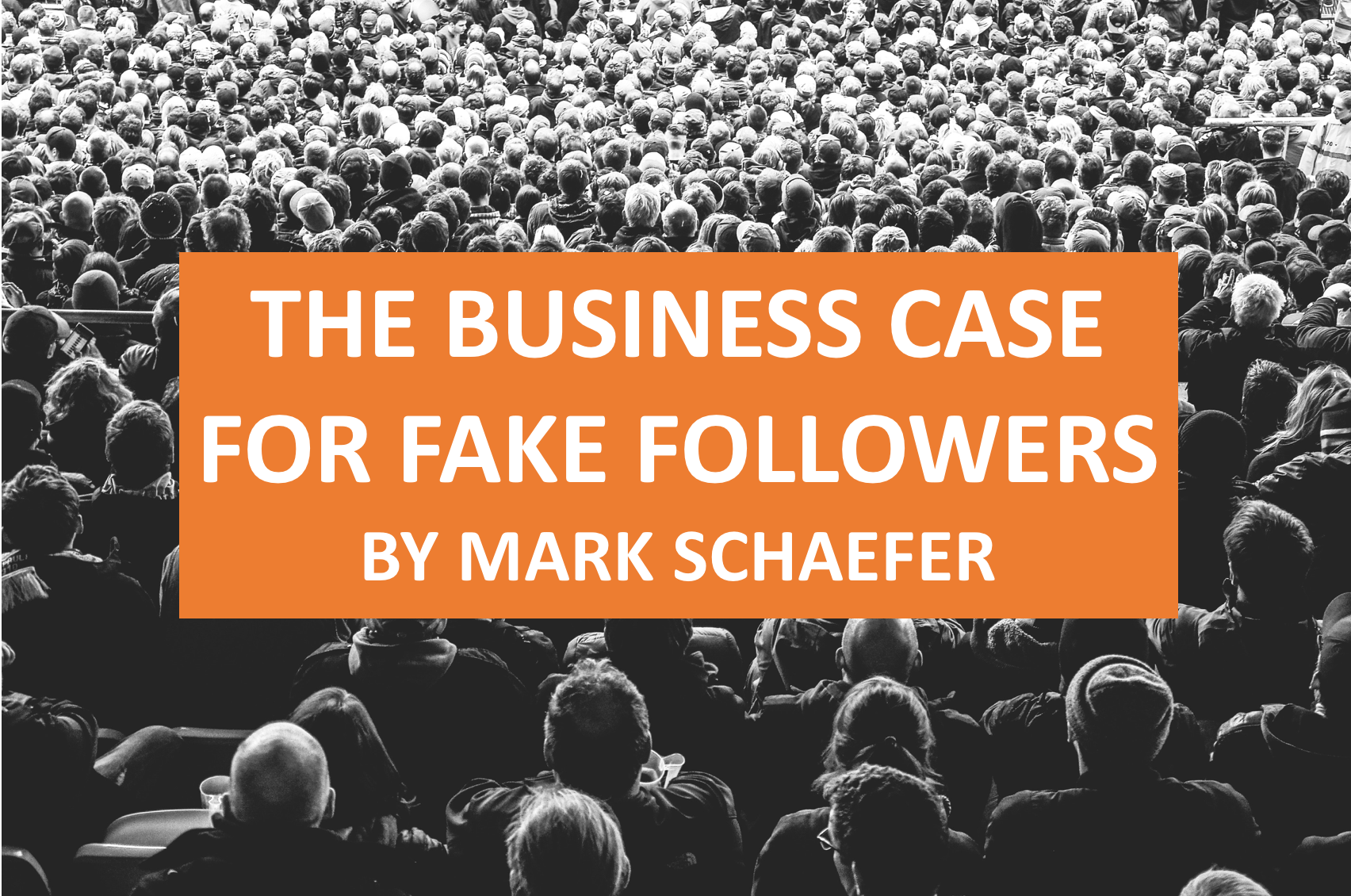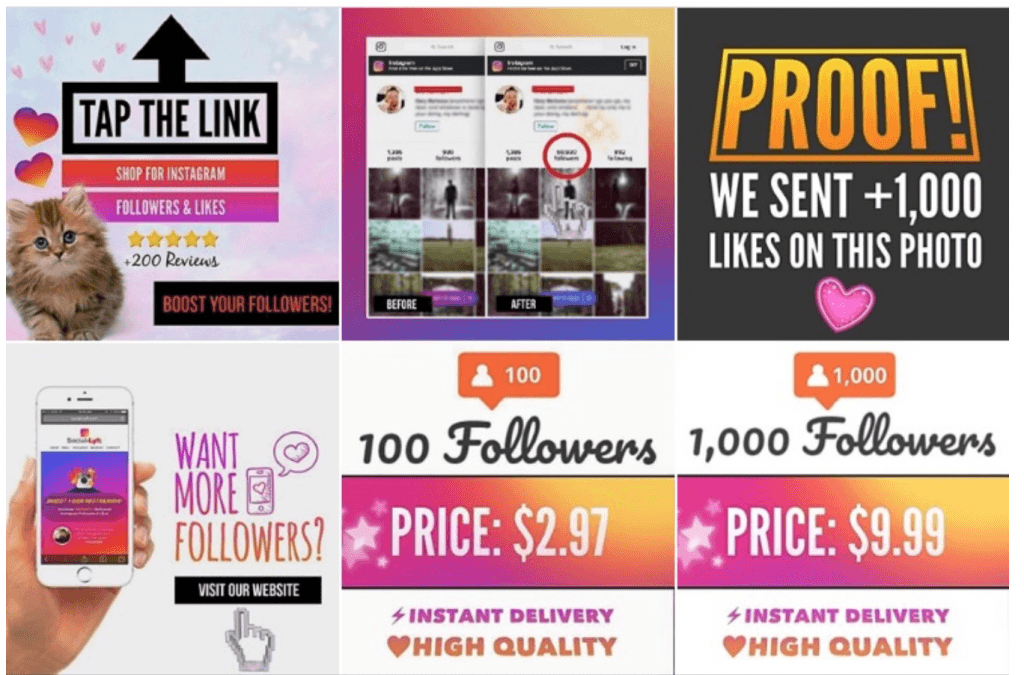
The New York Times just published an explosive report called “The Follower Factory” detailing the black market for fake followers, likes, and comments. The reporters outed politicians, athletes, and even social media gurus who had bought followers from a company called Devumi. (The State of New York is now investigating this company).
Why would anybody buy fake followers? One simple reason.
It works.
The business case for fake followers
To understand why people (and companies) buy fake followers, you have to understand the concept of social proof. Here’s a little story to illustrate how this works.
Let’s say you moved into a new apartment and bought a beautiful house plant. But your poor plant immediately begins to wilt, so you do a web search to find a solution.
You discover two blog posts that seem to solve the problem. One post shows it has been tweeted 5,000 times. The other post has been tweeted five times. Which one will you read?
I’ve asked this question to thousands of my students over the years and not one of them has ever answered “the one with five.”
Think about this astonishing truth — it doesn’t matter who wrote the article or where it appeared. The article may not even be true. But we chose this as the authoritative work because of a number.
And that my friends, is the awesome power of social proof.
Social proof is useful
Whether we are online or offline, we use social proof every day to make low-risk decisions when we don’t have the whole story. Our behavior is often driven by the assumption that people with lots of followers may possess more knowledge about what is correct, popular, or ideal—a herd mentality.
In fact, these numerical badges of influence may be more important than true authority, at least in the short-term. People just don’t dig deeper to see if somebody is legitimate or a list of followers is real … so it’s possible to be rewarded for simply faking it. And many do.
Because it’s so easy to manufacture followers, likes, comments, book reviews, and other badges of social proof, there has been no time in history where the appearance of authority can be so easily assumed and promoted. Words like “best-selling,” “award-winning” and “expert” have been rendered almost meaningless.
The social proof competition
I covered this fascinating subject of social proof in Return On Influence (the first book on influence marketing). In this book I quoted my brilliant friend Jay Baer, author of Hug Your Haters:
“We care about Twitter followers and Facebook likes disproportionately because we keep score in public. Every legitimate social media consultant will tell you that it’s not about how many Twitter followers or Facebook likes you have, it’s what you do with them. And in terms of driving measurable behavior, conversions, revenue, loyalty and advocacy, they are of course correct.
“Number of Twitter followers doesn’t mean a thing, right? Wrong. The reality is that social media measurement is a very public competition, and we buy it hook, line, and sinker. Why would politicians not only pay to build a following that dwarfs the other candidates, but then have the audacity to brag about the advantage? Because it matters in the court of public perception.”
“We may not like it,” Baer continued. “We may not even choose to admit it. But it’s disingenuous to suggest that number of Twitter followers has no impact on how you or your organizations are viewed by the vox populi. It’s not a key performance indicator, it’s a key popularity indicator.”
And that intense competition has driven some outrageous behavior in our industry.
Let’s state what everybody knows, or should know: The Times article is the tip of the iceberg. Many in our marketing space have faked their way to the top. “Influencers” in our field have bought hundreds of thousands of followers. They have purchased Amazon reviews to make their books look good. One fellow even created fake accounts that he manipulated to defend him when people took shots at him on social media.
Lazy marketers make it worse
Unfortunately, professional marketers make the problem worse by placing too much credibility in social scoring and “lists” of social influencers that mean very little.
In the current world of social analytics, my “influence score” would not be impacted by the fact that I have written six books, consult with Fortune 100 clients, or that my blog is in the top 1 percent of blogs in the world (based on page views and also reader comments).
Those factors are ignored by the popular rating systems, in favor of Twitter followers, Instagram comments, and Facebook Likes — all of which are easily faked. Why? Because those numbers can be readily absorbed by an algorithm. I’m not complaining, I’m simply pointing out how rudimentary the technology is at this point. We need to apply critical thinking when looking at math-based assessments of “influence.”
Unfortunately, we don’t do that, and companies and consumers are being duped by fake social proof:
- Mediakix created two entirely fake “influencer” accounts and was able to attract sponsorship dollars from major brands.
- A restaurant in London became one of the top-rated establishments in the city … and it didn’t exist. The restaurant’s reputation was created entirely by fake reviews.
- An Australian beauty influencer lashed out at her highly-sponsored competitiors, proving many of their followers were fake.

Companies selling followers, likes and comments are under investigation
The influence pressure cooker
There is a lot of money associated with “influence” status. The care and nurturing of these badges of social proof is big business with high stakes.
I’ve been passed over for work and speaking assignments because other people had more followers than me. Udemy rejected a course proposal because they said that in the business category they only worked with people who had at least 200,000 Twitter followers (I have 170,000).
If the cards are stacked against me at these companies that value irrational symbols of power, why should I maintain an authentic social media presence? Doesn’t it make sense for everyone to fake it?
No.
In the long-run, the fakers will be outed. Perhaps that’s already starting to happen with this New York Times article. Do you want to be on the next list?
True influence will prevail
I began this post by stating that people buy fake followers because the tactic works, and it has. But the technology is catching up to these social proof fakers. In the end, true influence and good work will matter.
Clients will eventually figure it out, easily detect the fakers, and make decisions based on what a person really accomplishes in this world.
In an AdWeek interview, Kerry Perse, who leads social marketing at Omnicom-owned media agency OMD (Pepsi, McDonald’s and Nissan), discusses how agencies are dealing with the fake-follower quagmire.OMD uses an influencer rating score and the most important measure is number of fake accounts in the audience. So, establishing real authority matters.
How should you legitimately stand out in this bloodless war over followers and likes?
I’m confident that answer is in my book KNOWN, which describes a process to build a digital presence, reputation, and authority that lasts. That is the only way to create a true and sustainable competitive advantage.
While badges of social proof can be gamed, humanity cannot. Nurturing true authority through authenticity, meaningful content, and an engaged group of followers will lead to a legitimate reputation and business benefits.
Yes, you can fake it now, but there is no shortcut to lasting influence. You must do the work to build an emotional connection with an audience that matters. A real audience.
 Mark Schaefer is the executive director of Schaefer Marketing Solutions and COO for B Squared Media. He is the author of several best-selling digital marketing books and is an acclaimed keynote speaker, college educator, and business consultant. The Marketing Companion podcast is among the top business podcasts in the world. Contact Mark to have him speak to your company event or conference soon.
Mark Schaefer is the executive director of Schaefer Marketing Solutions and COO for B Squared Media. He is the author of several best-selling digital marketing books and is an acclaimed keynote speaker, college educator, and business consultant. The Marketing Companion podcast is among the top business podcasts in the world. Contact Mark to have him speak to your company event or conference soon.
Book links are affiliate links.
Illustration courtesy Unsplash.com


